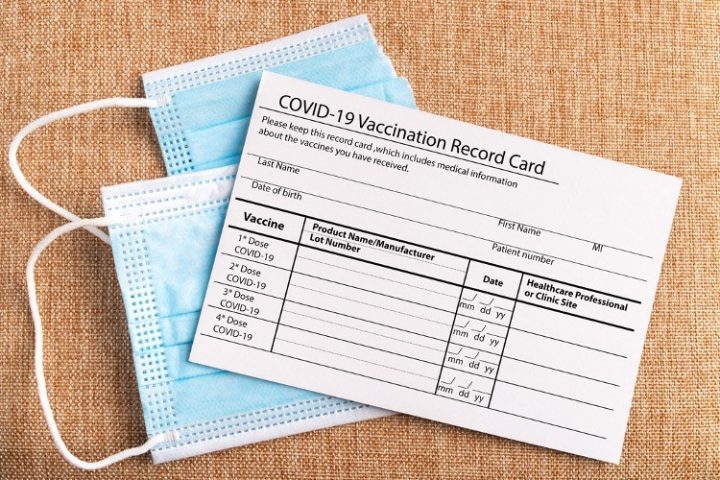
I will do no harm or injustice to them [my patients]…
Neither will I administer a poison to anybody when asked to do so, nor will I suggest such a course….
Into whatsoever houses I enter, I will enter to help the sick, and I will abstain from all intentional wrong-doing and harm…
Now if I carry out this oath, and break it not, may I gain for ever reputation among all men for my life and for my art; but if I break it and forswear myself, may the opposite befall me.
Those words from the Hippocratic Oath are said by every single medical practitioner around the world and cement his or her commitment to uphold the highest ethical standards of the profession. Yet a Colorado-based health system says it will be denying life-saving operations to the patients who chose not to get arguably unsafe (the Greeks would say “poisonous”) experimental gene therapeutics, aka COVID vaccines.
On Wednesday, UCHealth, a not-for-profit hospital system headquartered in Aurora, Colorado, confirmed its new policy that would deny organ transplants to patients not vaccinated against COVID in “almost all situations.” In a statement to The Hill, the hospital said,
In almost all situations, transplant recipients and living donors at UCHealth are now required to be vaccinated against COVID-19 in addition to meeting other health requirements and receiving additional vaccinations.
The hospital further explained that patients who receive a transplanted organ are at “significant risk for COVID-19,” and cited studies that estimated the mortality rate for transplant patients who contract the virus at between 18 and 32 percent, while the current mortality rate for the general public who have “tested positive” stands at 1.6 percent.
The hospital did not provide the mortality rate for the patients who do not get their organ transplants on time. Presumably, to justify the policy, the rate must be lower than the patient’s risk of dying from COVID after receiving such an operation.
The statement continues:
This is why it is essential that both the recipient and the living donor be vaccinated and take other precautions prior to undergoing transplant surgery. Surgeries may be postponed until patients take all required precautions in order to give them the best chance at positive outcomes.
The hospital then tried adding another justification for its policy: UCHealth is not the only hospital that has implemented such a requirement, as if two wrongs make a right. Some other transplant centers, it said, “already have this requirement in place, and others are making this change in policy now.”
The healthcare system’s updated policy garnered national attention on Tuesday, after Colorado State Representative Tim Geithner (R) shared on Twitter the the hospital denied a kidney transplant to a Colorado Springs woman because she was not vaccinated against COVID.
In the letter posted by Geithner, the health system informed the patient:
The transplant team at University of Colorado Hospital has determined that it is necessary to place you inactive on the waiting list. You will be inactivated on the list for non-compliance by not receiving the COVID vaccine. You will have 30 days to begin the vaccination series.
UCHealth warned the woman that if she decides to forgo COVID vaccination, she will be removed from the kidney-transplant list. The hospital added that the patient will continue to accrue waiting time, but will not receive a kidney offer while listed “inactive.”
While Geithner did not identify the patient who was allegedly denied a transplant, Leilani Lutali came forward and identified herself as the patient to 9News.
Lutali provided she had a stage 5 renal failure, which means her kidneys are failing or close to failing, and organ transplant is the best option to prolong her life. Yet, because she and her donor, Jaimee Fougner, are both unvaccinated, Lutani is now scrambling to find a new transplantation center.
Per the outlet, Lutali said the hospital told her in August that the COVID vaccination would not be a prerequisite to get the surgery. However, at the end of September, both she and Fougner received the letters instructing them to begin the vaccine process in 30 days in order to proceed with the operation, and that they would be removed from the kidney transplant list if they refuse the jabs.
Lutali said she would sign a medical waiver, releasing the hospital from any liability should anything go wrong. “It’s surgery, it’s invasive. I sign a waiver for my life. I’m not sure why I can’t sign a waiver for the COVID shot,” she said.
She explained her hesitancy to receive the shot due to its unknown medical implications, and Fougner, whom she met at a Bible study, has not gotten the shot because of her religious beliefs.
Reportedly, the two women haven’t been able to find a hospital in Colorado that will do the transplant while they’re unvaccinated, and are now looking for transplant centers in other states.
The data from the Health Resources and Services Administration shows that some 106,000 people, including children, are currently on the national transplant waiting list. Seventeen people die each day waiting for an organ. According to WebMD, most recipients are generally between the ages of 50 and 64.
It was previously reported by Yahoo News that medical ethicists have criticized doctors for refusing to take care of unvaccinated patients, even for COVID-unrelated diseases. It was noted that while it is legal for doctors to refuse seeing a patient for any reason that doesn’t violate laws against discrimination on the basis of race, sex, and gender, medical ethics standards go far beyond that.
Dr. Jonathan Moreno, a professor of medical ethics at University of Pennsylvania, told the outlet, “Once the medical profession starts deciding, picking and choosing who can be cared for and who not for whatever reason, we’re in a really bad position.”
Moreno added that the foundations of medicine require doctors to take care of patients, but “If they stopped doing that, then we really have no profession.”




